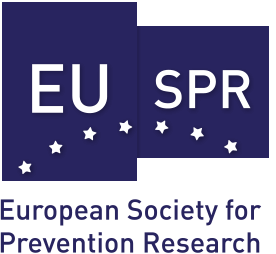| Name | Statement |
|---|---|
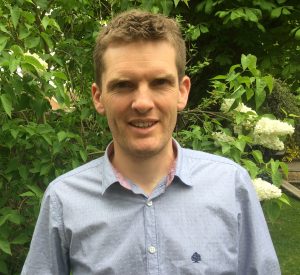 | I am Associate Professor of Health Services Research at the University of Plymouth, UK, and a Senior Associate of the Dartington Service Design Lab. I have worked in prevention and early intervention research for over 20 years, focusing on how to improve psychosocial outcomes for children and families in a range of subject areas (e.g. bullying, behaviour, social-emotional learning, maltreatment). Issues of particular interest for me at the moment are place-based / ‘collective impact’ initiatives, applying human-centred service design principles to prevention and cultivating a stronger learning culture around null or negative trial results. I joined EUSPR in 2011, since when I have contributed in various ways to the annual conferences, and became an advisor to the board in 2014. I am on the board of the Xchange registry of evidence-based programmes hosted by the European Monitoring Centre for Drugs and Drug Addiction and for three years (2013-2016) worked on the European Communities that Care project, collaborating with colleagues from several European countries. My role on this project was overseeing the appraisal against standards of evidence of home-grown and imported programmes tested in Europe. This work ultimately fed into Xchange and I believe demonstrates my commitment to the EUSPR goals of promoting quality in prevention in Europe and disseminating research in accessible ways to policy makers and practitioners. The EUSPR is a great forum for prevention science researchers at all career stages to learn from and support one another, as well as being a voice in international settings for European perspectives on prevention, and I would be honoured to serve as a Board member and support its further development. |
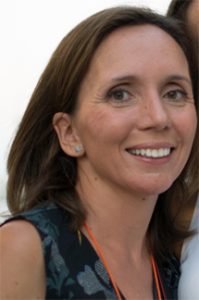 | Elena Gervilla is an Associate Professor and works at the Faculty of Psychology (Area of Methodology of Behavioural Sciences) at the University of the Balearic Islands (UIB, Spain). In addition, Elena is a researcher in the Research Group in Data Analysis at the UIB. The research she develops focuses on adolescent and youth drug use prevention. She is especially interested on the improvement of the quality of the data collection as well as the implementation of data mining techniques that allow to model substance use behaviour in the social natural environment. She also collaborates closely with the European Institute of Studies on Prevention (IREFREA, Spain) in the development and implementation of research projects. Besides, she has been an active member of the European Society for Prevention Research (EUSPR) for the past 3 years, supporting the Early Career Forum. She is now leading the EUSPR 2019 Scientific Committee. As a EUSPR Board member, she commits to help the EUSPR with the organisation of the annual conference and with the dissemination of EUSPR activities. |
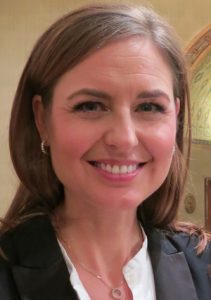 | Dr. Johanna Gripenberg is a prevention science researcher and since 2014 the Director at STAD (Stockholm prevents alcohol and drug problems). STAD is a research and development unit within Stockholm Centre for Psychiatric Research, Stockholm County Council and the Karolinska Institutet at the Department of Clinical Neuroscience in Stockholm, Sweden. In addition, at the Karolinska Institutet Johanna is a Research team leader. Johanna has a Bachelor of Science in Nutrition and a Master’s degree in Health promotion from the University of Texas at Austin, US, and a Ph.D. in Medical Science from the Department of Public Health Sciences at the Karolinska Institutet in Stockholm, Sweden. Johanna’s research field is prevention science and she focuses on the development, implementation and evaluation of alcohol and drug prevention programs in the local community. Examples of programs are different STAD-models such as; Responsible Beverage Service in the nightlife setting, and alcohol prevention at large sporting events. Johanna has been part of a number of EU-projects e.g. STAD in Europe. Johanna has nearly 20 years of experience in the prevention science field and one of her missions is to bridge the gap between science and practice. As an EUSPR board member, Johanna can especially contribute with her knowledge in development, implementation and evaluation of community-based alcohol and drug prevention interventions. |
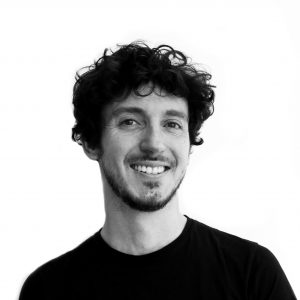 | I am the Chief Executive of the research charity - the Dartington Service Design Lab. In this and prior roles at Dartington I have spent over a decade working with numerous public systems, charities and foundations to help shape a series of bold prevention and early intervention investments and experiments designed to improve child outcomes. My work at Dartington has long supported the mission of EUSPR. I have promoted, advocated for and undertaken research in support of greater investments in evidence-based prevention and early intervention, both in the UK, but also internationally (including large scale investments in Ireland and the US, as well as some involvement in EU collaborations – such as EU CTC). This work has involved undertaking numerous Randomised Controlled Trials, supporting the development of Standards of Evidence that are now used by most of the ‘what works’ centres in the UK, and numerous place-based initiatives. International and inter-disciplinary collaborations have been a hallmark of our work at Dartington – something embodied and supported by EUSPR. In recent years, as I have taken the reigns of Dartington I have led our team to consider new frontiers and intersections of prevention and implementation science; in particular forging collaborations with interdisciplinary scientists, designers and system engineers. I joined the Dartington Social Research Unit as a researcher in 2004, later becoming Head of Data and Analytics. I was appointed as the first Director of the Dartington Service Design Lab in April 2017. I hold a first-class BSc in Psychology and Criminology and a PhD in Social and Policy Sciences. Alongside Nick Axford, I am recipient of the Kammerman and Khan Award from the International Society of Child Indicators. I am also a 2016 Clore Social Fellow. I hope I may be of service to the EUSPR. |
 | Dr. Koning is assistant professor at Interdisciplinary Social Science, Youth Studies at Utrecht University. Koning has made a significant contribution to research on youth risk behavior in interaction with the social context, applied to both substance addiction as well as behavioral addictions. She has made a significant contribution to research on parenting and the prevention of adolescent substance use and problematic online behaviour; including intervention development and translation, implementation, and evaluation. Koning highly values the translation of her work to practice. She has a history of disseminating her work to utilize the knowledge gained in the most comprehensive way possible. I would like to assist the board to fulfil their goals by bringing along my interdisciplinary background in the study of youth behavior in context. Most importantly, the translational science in intervention research has my main focus which ensures constant collaboration with stakeholders, development and research of interventions in practice and dissemination of results to the field all combined with my scientific interests and background. By being a member of the society I hope to contribute to the discussion of contemporary issues in intervention research, the organization of activities and dissemination of information to the public. |
 | In an early stage of my career, I have been part of the EUSPR as a member since 2015 and I am currently working as a project manager at the Jean Monnet University, Saint-Etienne, France. Coming from a training background mixing Psychology and Public Health, I try my best to apply a multidisciplinary perspective into the projects I create and coordinate. Belonging to the “Erasmus Generation”, I take special attention to do the same when it comes to integrate a European perspective within these same projects by implementing promising tools or initiatives developed within our prevention area of research or by creating European partnerships when possible. Every year, the EUSPR conference gives the opportunity to the attendees to share and discuss a part of their projects, whether integrated to a researcher, practitioner or policymaker perspective and to integrate and push forward people’s thoughts within an approach of excellence. Such opportunity has been made possible firstly because of the members themselves, but as well because of the Board members that have managed to create through the years a place of trust and kindness committed to raise evidence-based prevention for the population at large. I have tried to apply the same principles when I have officially integrated the Early Careers Forum activities of the EUSPR the year after its creation. I wish today to get even more involved within the EUSPR activities by integrating officially the Board members committee. I want in particular to keep creating and improving the link between the EUSPR and its Early Careers members in order for them to develop their expertise, to get the chance to learn from the “seniors” members. I apply to the position of Member of the Society Elected to the Board to keep building along with the other members a respected, trustworthy and place of excellence for the attendees. |
 | Since 2007 I'm at the head of the prevention and health promotion Unit in the mental health and addiction Department of ASL 2 in Savona (Italy). I collaborate with the manager to run the addiction Department and my specific mission is planning and implementing drug prevention interventions with the main local, regional and national stakeholders. The structure I lead has delivered projects coming from a European, national, regional and local level. Our aim is to improve people's health and to prevent disease related to drug consumption, especially among young people. Part of my work is addressed to train teachers and students and to offer knowledge and expertise to public and private institutions about prevention planning and interventions. I've been leading two laboratories at the University of Genoa on drug prevention quality standards and I'm a tutor for psychology students. I've been selected by the Italian national anti-drug policies Dept. to be part of the Scientific Committee of the website drog@news and I'm a member of the reviewer panel of the Italian journal on addictions. I've been project manager of two European projects funded by the European Commission in 2008 and 2013 :" European Standards in evidence for drug prevention", "promoting excellence in drug prevention" and leader in 2015 of a work package in the “UPC-Adapt project” aimed to adapt a prevention curriculum for the prevention workforce in the field of drug addiction. At the moment I’m the Scientific Coordinator of the European project “ASAP-Training” aiming to disseminate and train European Master Trainers on the most updated and effective prevention science interventions. Since 2014 I’m part of the International Committee of the American Society for Prevention Research (SPR), I'm an advisory board member of the European Society for Prevention Research (EUSPR) and a member of the Italian Health Promotion Society. I commit to help EUSPR in the dissemination of prevention principles and to enhance the quality of prevention by adopting evidence-based interventions. I also commit to translate into practice the theories and to try to bridge the gaps between science, practice and policies. |
 | Professor of Public Health at the University of Bordeaux, I lead a research team dedicated to prevention at the Inserm U1219 « Bordeaux Population Health » Research Centre. Also a hospital practitioner at the University Hospital of Bordeaux, I have just created the first methodological support and innovation department entirely dedicated to prevention in the healthcare environment. I also held the position of Minister Advisor and Head of Social Security Advisor, my role was to promote and supervise public health policies and more particularly prevention policies. I was also deputy director of the National Institute of Public Health Research and as such contributed to the programming of prevention research. This triple career path as a teacher-researcher, practitioner and policy maker allows me to understand the major challenges, obstacles and levers of the development of prevention within and outside the healthcare system and has made me aware of the need to strengthen evidence informed public health practices at all territorial levels. Moreover, innovation (whether technological or organizational; whether research- or field-based), as well as its transfer and/or scaling up, is the future of our health systems. These innovations must be supported, evaluated, accompanied in their emergence and transfer. This requires methodological developments from an interdisciplinary perspective. This is one of the priorities of prevention research. This is the focus of the research team I lead. This need to be organised at a national level, but also at European level. In particular, I have worked on these issues in national and international projects. Through its international dimension, through the association of cross-disciplinary research communities from various disciplines and communities of practice and decision making, EUSPR is the place where a shared prevention research agenda can be built that meets current challenges; a crossroads between research and policy-making to promote the dissemination of research work and knowledge sharing and its appropriation for evidence informed policy making; a lever for health advocacy. My ambition is to contribute to this effort as a member of the 2019 - 2022 EUSPR Board, by putting my experience at the service of the community. |
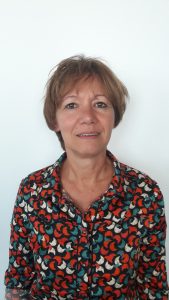 | Prevention science is a new science in Europe but even more so in France, a country that is lagging far behind in this field. My background was first of all that of a field actor at the service of the development of methodology in preventive health actions. After a doctorate in sociology-anthropology, I worked for 10 years (1993-2003) as a manager in a health education departmental committee in northern France. The challenge was to carry out actions in the field in relation to public health policies and to develop the methodology of these actions in accordance with the spirit of the Ottawa Charter, which involved setting up a training and facilitation programme for all actors contributing to prevention among the population. This programme focused on improving the quality of interventions and better involvement of the public in the various phases of the projects. In 2006, I joined the project of a newly created team whose objective was to develop research in cancer prevention in Rhône-Alpes area. I am currently coordinating this team in collaboration with Professor Chauvin. We have used the 13 years of the team development to initiate and carry out innovative prevention and prevention research projects in France with the aim of promoting prevention science in our country and fostering collaboration with other countries more advanced in that field. For several years now, we have been turning to intervention and implementation researches. In this context, population involvement, social representations of health and the understanding of how are received prevention's messages are major thematic areas to which I have contributed very actively. From September 2019, I will join the Jean Monnet University - Lyon1. I will be in charge of organizing and managing this PRESAGE Institute, which cluster ten laboratories of the Jean Monnet-Lyon 1 University. As a member of the EUSPR Board, I could bring to the Board the reflections and ideas of the various national institutions in which I am involved: National Cancer Institute; League against Cancer as well as the UNESCO Chair "EducationS & Santé" / "Global Health & Education" and the WHO Collaborating Centre for "Research in Education and Health". A reporting effort will be made to report and share within Public Health France, and UNIRES (Réseau des Universités pour l'Education à la Santé). I could make the voice of EUSPR to these bodies as well as to the institutions in which I participate statutorily: - University Jean Monnet - Institute PRESAGE -HESPER (Health Services and Performance Research) Laboratory - National Research Platform for cancer prevention. - Rhone-Alpes Auvergne Cancer Organisation I would like to relay EUSPR's missions and activities to the French partners and encourage participation of researchers and students in the annual EUSPR congress. I also think it could be interesting to encourage exchanges of students and researchers by relaying exchange programmes. |
